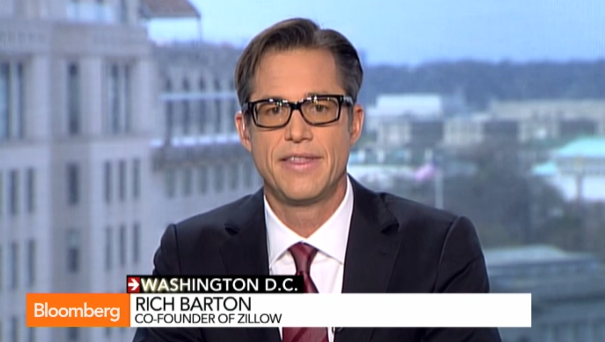I’d read that 18 million sexy and inexpensive Xiaomi Smartphones had shipped in China last year, the company’s 3rd year in existence. And, I’d heard about the MiTV, Xiaomi’s smart TV that was shaking up the market in China. Still, when Lei Jun, the Jobs-ian co-founder and spiritual leader of this Chinese manufacturing, design, and marketing phenomenon, slid me a gift — the Mi Charger, a sleek 10,400 mAh charger (4x faster charge than the closest US competitor — Mophie), I was smitten.  How could a phone charger elicit lust? After returning from my China Week with the Benchmark Capital partners (including Bill Gurley, who authors a must-read blog called AboveTheCrowd), I gave the Mi Charger to my wife, Sarah, who is constantly, annoyingly short of battery on her iPhone. Her reaction after an hour of use? “This thing is amazing! Suzie wants one, too. Where can she buy it?” Nowhere yet. But I assume we’ll have it in the US soon. And if Xiaomi follows the China playbook, it will be shockingly inexpensive.
How could a phone charger elicit lust? After returning from my China Week with the Benchmark Capital partners (including Bill Gurley, who authors a must-read blog called AboveTheCrowd), I gave the Mi Charger to my wife, Sarah, who is constantly, annoyingly short of battery on her iPhone. Her reaction after an hour of use? “This thing is amazing! Suzie wants one, too. Where can she buy it?” Nowhere yet. But I assume we’ll have it in the US soon. And if Xiaomi follows the China playbook, it will be shockingly inexpensive.
“What is different about Chinese Xiaomi vs Google, Apple, and other American tech companies?” we asked Hugo Barra, the new, intriguing Xiaomi VP swiped from Google in his prime, as we sipped Japanese whiskey at the mega-high style Opposite House hotel in Beijing last week. Hugo said the Chinese simply work harder. They are as smart and capable as their American counterparts, but the pain and shame of poverty and obscurity is much closer to them than it is to us. When we left a meeting with Victor Koo, Chairman of China’s Youtube, Youku, at 7:00p on a Wednesday evening, we walked into a sea of cubicles. Every one was occupied. Some by napping engineers and editors. Evidently, this continues well into the night. The Chinese work harder. They are trying to make a much better life for themselves and their mothers.
The Chinese have great universities, loads of capital, and a government that supports and protects (to non-Chinese’ great disadvantage) new company creation. This has created a startup ecosystem that is thriving and dying to challenge the hegemony of the West in the decades to come. As Lei Jun gave me the Mi Charger and described his strategy, through a translator, he said: “The revolution begins”.
Related: I recently spoke on Bloomberg about the China startup environment, among other topics, with @ErikSchatzker & @SRuhle.

Me on Bloomberg w/ @ErikSchatzker & @SRuhle
I have called Seattle home for more than two decades and my wife and I are raising our children here. There’s a lot to enjoy and be proud of about Seattle – the City Council’s vote on ride sharing earlier week this isn’t one of them.
Seattle is a different city from when Microsoft imported me shortly after college in 1991. Seattle then was best known for Grunge rock, which i happily ruined my eardrums on. Since then technology has completely transformed our lives, and our culture of innovation makes our community a haven for entrepreneurs and investors to create visionary startups that become lasting and enduring brands.
While Uber, Lyft and other ride-sharing startups may not be headquartered here, the local impact and benefits are not inconsequential. I recently shared my own experience and week-long test of Uber-only transport. But, ride-sharing isn’t just about the convenience of consumers finding a ride in minutes, it about the livelihood of these drivers who are now operating their own small businesses and becoming entrepreneurs in their own right. I hear nothing but glowing reviews of Uber from the drivers and how the service has had such a positive impact on their lives – schedule convenience, income, and safety. (I recently heard a driver’s story about how, as a taxi driver, he’d had a knife to his neck when a fare demanded he be taken to a location without paying. His words: “Uber changed my life.”).
The spark of an idea, the power of geo-located mobile devices, and an archaic and highly inefficient, supply-constrained taxi system gave way to the creation and rise of Uber and other ride-sharing services. I have no doubt the City Council’s short-sighted decision will be overturned in time. I am just extremely disappointed – and more than a little embarrassed – that it was Seattle (the land of legalized marijuana and same-sex marriage) that failed to recognize the future is here, and the past – well, isn’t.
Last year when I spoke at the Global Entrepreneurship Summit in Kuala Lumpur, I talked about the seeds of innovation and entrepreneurial ecosystem starts with good government. I boasted that while not perfect, our system in the U.S. provides a supportive and rational system that enables innovation. I used Seattle as an example of a vibrant ecosystem and progressive pioneer in policy that many model and follow. Apparently, Seattle’s City Council didn’t get the memo.
I have 50k photos in my iPhoto Library, 25k of which are synched to my iPhone and a smorgasbord of other iOS devices in my family. I’ve put hundreds of hours into creating metadata in iPhoto on my Macbook Pro through multiple generations of mediocre photo organizing features. And now, the latest iOS7 photo app on my iPhone 5 decided, once again, to try a new photo grouping UI with the new concept of “Collections”, totally ignoring all the work I put in organizing my photos into logical “Events”. I’d guess I am part of a very small % of users who even uses all of the rating, face recognition, GPS-locating, and folder/album organizing features of iPhoto.

Despite all of this, I still find myself making my dinner party friends motion sick as I thumb through screen after screen of photos looking for that killer photo of the Roosterfish I caught in Cabo on my 40th birthday (a while ago) with the new Sage fly rod my buddy Nick gave me as a present.
So, I have a simple feature suggestion — Favorites. Enable a universal one touch Favorite button on all photos. This way, when I find my go-to story telling photos, I can quick tag them as a Favorite, storing them in a folder that will need to be easily accessible on all my devices. The next time I try to go fishing for that same photo, everyone is spared the awkward search time, because it’s in my favorites folder.
More importantly, favorites will mean I don’t have to grind my teeth politely while you scroll your photos, trying to show me up with the blue marlin you say you landed 5 years ago…
 How could a phone charger elicit lust? After returning from my China Week with the Benchmark Capital partners (including Bill Gurley, who authors a must-read blog called AboveTheCrowd), I gave the Mi Charger to my wife, Sarah, who is constantly, annoyingly short of battery on her iPhone. Her reaction after an hour of use? “This thing is amazing! Suzie wants one, too. Where can she buy it?” Nowhere yet. But I assume we’ll have it in the US soon. And if Xiaomi follows the China playbook, it will be shockingly inexpensive.
How could a phone charger elicit lust? After returning from my China Week with the Benchmark Capital partners (including Bill Gurley, who authors a must-read blog called AboveTheCrowd), I gave the Mi Charger to my wife, Sarah, who is constantly, annoyingly short of battery on her iPhone. Her reaction after an hour of use? “This thing is amazing! Suzie wants one, too. Where can she buy it?” Nowhere yet. But I assume we’ll have it in the US soon. And if Xiaomi follows the China playbook, it will be shockingly inexpensive.


